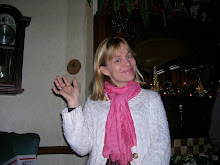I have a confession. I've started this blog about a dozen times (maybe more) but holiday festivities keep getting in my way. If it's not a house filled with friends and family, it's an all-day baking extravaganza or a napping session after over-indulging in all those baked goods.
But I'm working on a story that begins shortly after the Christmas season, so Medieval merrymaking is very much on my mind this year (although I couldn't find anyone who wanted to try a figgy pudding). Medieval Christmas celebrations were very different and yet very much the same as ours.
Most of the festivities centered on feasting and friends, with gift giving and worship rounding out the corners.
Rather than a month-long build up to Dec. 25, however, most of the holiday mirth and merrymaking began Christmas Day and ended Jan. 5, the beginning of Epiphany, which celebrates the Wise Men's arrival to present gifts to the baby Jesus.
But I'm working on a story that begins shortly after the Christmas season, so Medieval merrymaking is very much on my mind this year (although I couldn't find anyone who wanted to try a figgy pudding). Medieval Christmas celebrations were very different and yet very much the same as ours.
Most of the festivities centered on feasting and friends, with gift giving and worship rounding out the corners.
Rather than a month-long build up to Dec. 25, however, most of the holiday mirth and merrymaking began Christmas Day and ended Jan. 5, the beginning of Epiphany, which celebrates the Wise Men's arrival to present gifts to the baby Jesus.
During the early Middle Ages, Epiphany was the primary winter holiday with no fixed date to celebrate Christ's birth. However, in the 4th century, Pope Julius I set Dec. 25 as the day to celebrate the Nativity. Over time, various pagan customs associated with the Winter Solstice were incorporated into the seasonal celebrations until Yuletide became the time for feasting, socializing and praying.
Christmas courts were opulent affairs, marked by music, feasts and remnants of pagan rites. Nobles competed with each other to put on the biggest and most varied feasts. Lavish celebrations weren't just for the elite. Minor nobles invited servants and retainers to the castle, and leftovers were given to the poor.
Twelfth Night celebrations included more food and friends. Gifts were usually exchanged on Twelfth Night rather than Christmas eve or day, and Christmas decorations were taken down.







